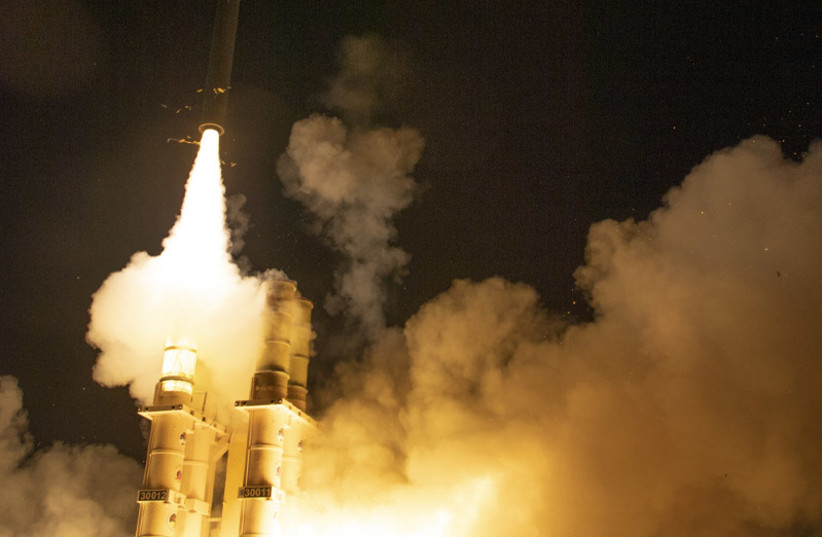The announcement last week that the US had approved Israel’s sale of its Arrow-3 missile defense system to Germany is important and its significance stems not only from the financial aspect, but also from deeply symbolic reasons.
On the economic side, the deal is expected to eventually be worth $3.5-4 billion, making it the largest defense deal in Israel’s history. From an emotional viewpoint, it is impossible to ignore the significance of the Jewish state, 75 years after its creation, selling a state-of-the-art defense system to Germany, of all places.
As Prime Minister Benjamin Netanyahu summed up in a statement: “Today is a historic day. Israel has signed the largest security deal in its history. However, it is not just a security deal; Israel is selling the sophisticated Arrow-3 missile to Germany.
“Seventy-five years ago, the Jewish People had been ground into ash on the soil of Nazi Germany. Seventy-five years later, the state of the Jews is giving Germany, a different Germany, the tools to defend itself. What Israeli pride; what a historic turnaround.”
Israel went from buying weapons from Germany to selling it to them
Israel for many years has bought weapons from Germany, and this is not the first sale of weapons there, but the price tag and sophistication of the defense system put it in a different league.

The US had to approve the sale as the project is co-developed and co-produced by the Israel Missile Defense Organization and the United States Missile Defense Agency.
When the green light was given last week, moving the deal a crucial stage forward, Israel’s Defense Ministry explained: “With its exceptional long-range interception capabilities, operating at high altitudes above the atmosphere, it [the Arrow-3] stands as the top interceptor of its kind. The system employs a hit-to-kill approach for intercepting incoming threats.”
Defense Minister Yoav Gallant said: “The US government’s approval of the delivery of the Arrow-3 missile-defense system [to Germany] is an expression of confidence in the excellent capabilities of Israel’s defense industries. This is a significant decision, which will contribute to Israel’s force buildup and economy. It is also particularly meaningful to every Jewish person that Germany is acquiring Israeli defense capabilities.”
Several senior Israeli officials involved in the deal noted that it reflected the strength of Israel’s defense ties with the US as well as Germany. It is also clear that, in the wake of Russia’s invasion of Ukraine in February 2022, Europe today is more aware of security threats and the need for modern defense systems.
The Arrow sale is the third recent mega-sale to a European country. Earlier this month, the US gave the go-ahead for a purchase by the Finnish Defense Ministry of the Rafael-made David’s Sling air-defense system, and in May, Israel sold Elbit’s PULS artillery rocket launcher to the Netherlands.
According to Defense Ministry statistics released in June, Israel’s defense exports soared to a record $12.5b. in 2022, a 400% increase from the sales at the start of the 2000s and up some 120% over the last 15 years.
While 29% of the 2022 weapons sales went to Europe, an impressive 24% went to Abraham Accords countries – the UAE, Bahrain, and Morocco.
This, too, marks an astonishing shift. As the Abraham Accords this month enter their fourth year, we have grown used to seeing major deals in various fields with Arab countries in the region, but we should never take these for granted or underestimate their significance.
Israel was forced to develop sophisticated defense systems because of the constant threats and attacks it has faced over the years. There is a certain irony to the fact that this has had a turning-lemons-into-lemonade effect. Indeed, the country’s initial needs and isolation also led to major developments in non-military spheres and has helped the Start-Up Nation become a powerhouse in hi-tech, agritech, health, the environment, and other areas. Israel’s standing in the world is strengthened through the export of its products and expertise.
Of course, we would prefer to be in a situation in which we could fulfill the biblical prophecy of turning swords to plowshares, without the need for arms deals of any kind. But since this remains a dream at present, we can at least celebrate the way Israel can defend itself and help protect its allies.
